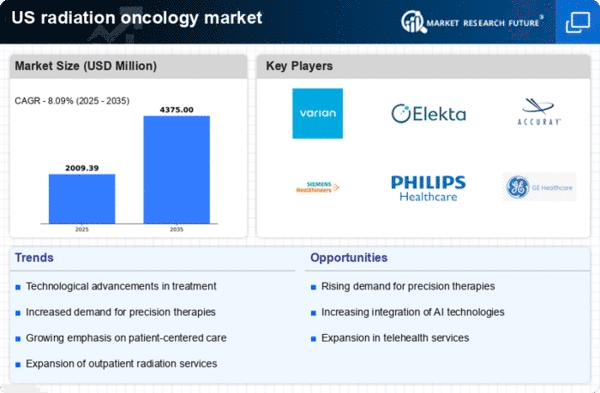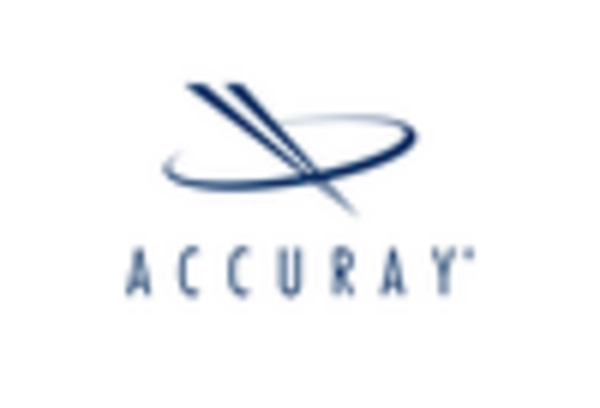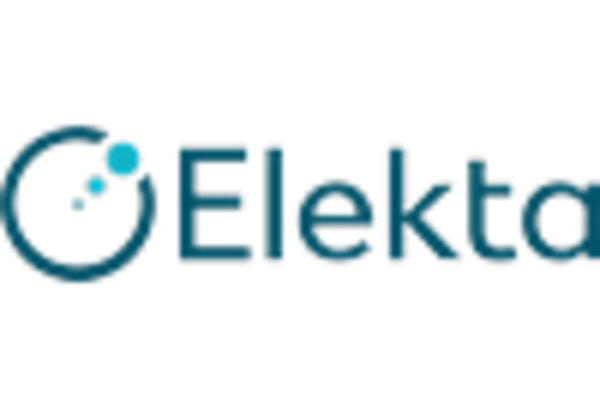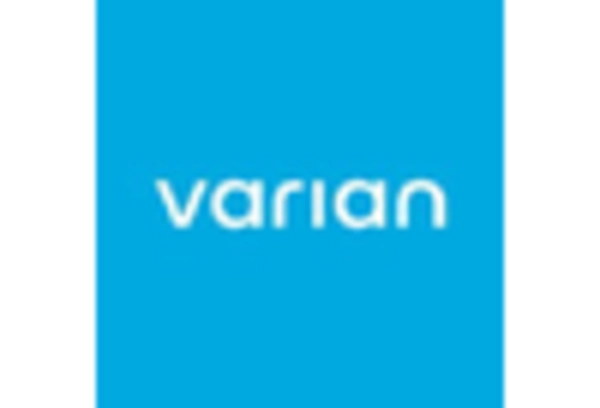Increasing Cancer Incidence
The rising incidence of cancer in the US is a primary driver for the radiation oncology market. According to the American Cancer Society, approximately 1.9 million new cancer cases are expected to be diagnosed in 2025. This alarming trend necessitates advanced treatment options, including radiation therapy, to manage and treat various cancer types effectively. As the population ages and lifestyle factors contribute to higher cancer rates, the demand for radiation oncology services is likely to increase. This surge in patient numbers places pressure on healthcare systems to provide timely and effective treatment, thereby propelling growth in the radiation oncology market. Furthermore, the increasing awareness of cancer screening and early detection is expected to contribute to the rising demand for radiation therapy, as more patients seek treatment options upon diagnosis.
Rising Healthcare Expenditure
The increasing healthcare expenditure in the US is a significant driver for the radiation oncology market. In recent years, healthcare spending has consistently risen, with projections indicating that it could reach $6 trillion by 2027. This growth in expenditure reflects a greater focus on advanced medical technologies and treatment options, including radiation therapy. As healthcare providers allocate more resources to oncology services, the demand for radiation oncology is expected to rise. Additionally, the expansion of insurance coverage for cancer treatments, including radiation therapy, is likely to enhance patient access to these services. Consequently, the radiation oncology market may benefit from this upward trend in healthcare spending, as more patients seek effective treatment options for cancer.
Growing Awareness and Education
The increasing awareness and education regarding cancer treatment options are pivotal drivers for the radiation oncology market. Public health campaigns and educational initiatives have significantly improved knowledge about the benefits of radiation therapy in cancer treatment. As patients become more informed about their treatment choices, they are more likely to seek radiation therapy as a viable option. This heightened awareness is further supported by the efforts of healthcare professionals to educate patients about the effectiveness and safety of radiation treatments. Consequently, the radiation oncology market is expected to experience growth as more patients opt for radiation therapy, driven by a better understanding of its role in comprehensive cancer care.
Collaborative Research Initiatives
Collaborative research initiatives among academic institutions, healthcare providers, and industry stakeholders are fostering innovation in the radiation oncology market. These partnerships aim to enhance treatment methodologies and develop new technologies that improve patient outcomes. By pooling resources and expertise, stakeholders can accelerate the development of novel radiation therapies and clinical protocols. Furthermore, government funding for cancer research is likely to support these collaborative efforts, leading to breakthroughs in treatment options. As a result, the radiation oncology market may witness growth driven by the continuous evolution of research and development initiatives that aim to improve the efficacy and safety of radiation therapy.
Advancements in Treatment Technologies
Technological innovations in radiation therapy equipment and techniques are significantly influencing the radiation oncology market. The introduction of advanced modalities such as intensity-modulated radiation therapy (IMRT) and stereotactic body radiation therapy (SBRT) has enhanced treatment precision and reduced side effects. These advancements allow for targeted delivery of radiation, minimizing damage to surrounding healthy tissues. The market for radiation oncology is projected to grow as healthcare facilities invest in state-of-the-art equipment to improve patient outcomes. Moreover, the integration of artificial intelligence and machine learning in treatment planning is expected to streamline processes and enhance decision-making. As a result, the radiation oncology market is likely to experience robust growth driven by these technological advancements, which improve the efficacy and safety of cancer treatments.
















